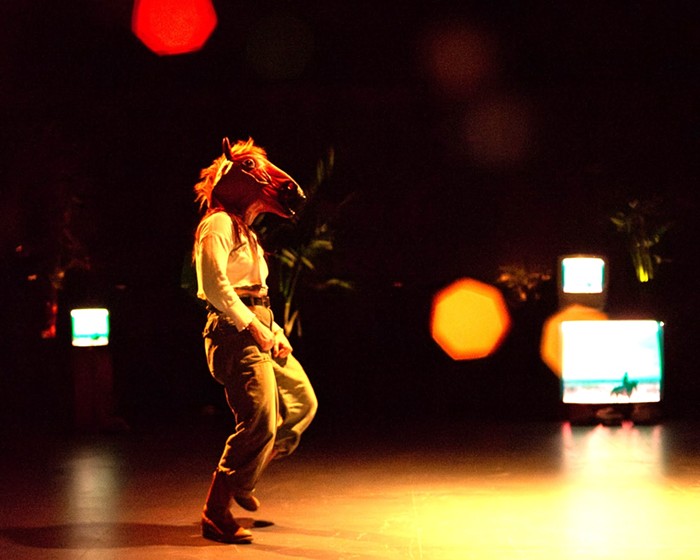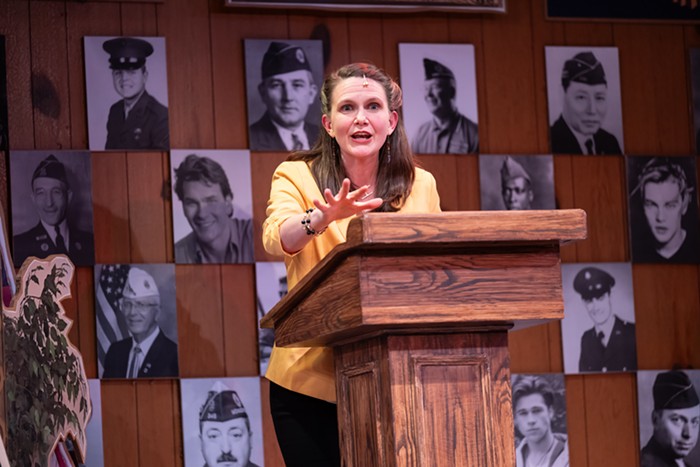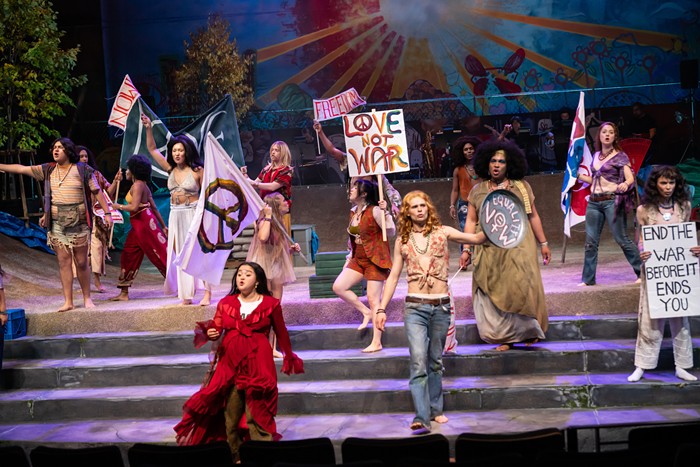Modern Dance is an art form struggling to find audiences, in Portland, and all over. It is, at its core, a wordless mode of expression, primal, and frequently alienating to viewers saturated by email, text messages, and American Idol.
I don't profess to know the solution to this dilemma, but I'm happy to report that others are working on it. Like the local dance-making duo of choreographer Angelle Hebert and composer Phillip Kraft, who have their thumb squarely on the pulse of what's potentially interesting about contemporary dance; it wriggles visibly beneath the pressure.
At a recent press preview, they unveiled four scenes from their upcoming show, Benumbed. In one, a gaggle of animalistic predators fed savagely on each other in between baffling bouts of an otherworldly hunting/dining ritual. In another, a black-clad, faceless figure (David Oury) crawled feebly, as if bound by a murky film that only he could see. And in the evening's most striking spectacle, a squadron of dancers (Claire Bollinger, Jessica Burton, Jaimelee Christiana, Suniti Dernovsek, Carla Mann, Shannon Sansoterra, and Hebert herself) guided a woman's (local stalwart Cydney Wilkes) movements via rods protruding from her appendages. The sight of Wilkes flailing within their elongated group-grasp was compelling, much like a nightmare is compelling.
Kraft and Hebert say their work addresses a "society where our senses are constantly being bombarded with media and commercialism" and "our ability to filter through information, maintain a sense of individual thought, and avoid the mind-numbing effects of constant stimulation." Like the great/scary French Canadian choreographer Marie Chouinard, a sense of entrapment pervades Benumbed. It uses technological advancements that appeal to media-saturated contemporary audiences, while simultaneously strangling the participants immersed in them. Skull caps, harnesses, and other tattered post-apocalyptic accoutrements combine with Kraft's eerie, creeping score to create an exhausted place; a world of creatures worn down by their own dependence on technology.
The irony of the restraining costumes (created by the crew of Elodie Massa and the Candelarias—David, Paloma, and Tony) is that they force a tight, introverted brand of physicality unlike anything I've seen on a Portland stage. In addressing dance's wearying battle to appeal to new audiences, Hebert and Kraft have, with a sly awareness of the irony, created something entirely new. Benumbed fumes with a slow, burning resentment toward the ever-changing times that it must keep pace with. A boiling point is inevitable, and the viewer awaits it with growing terror.


















